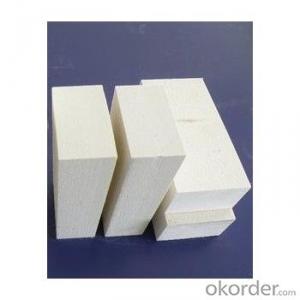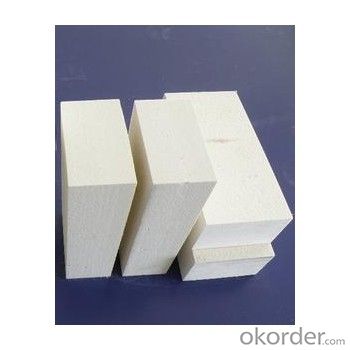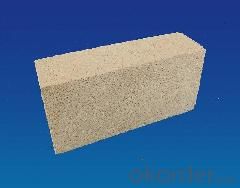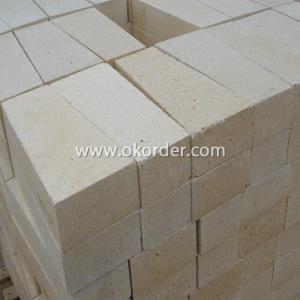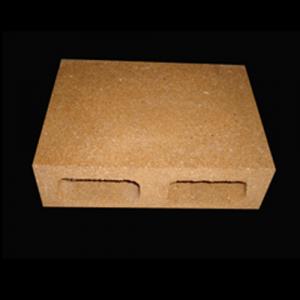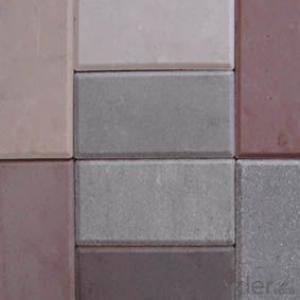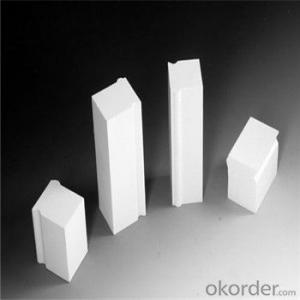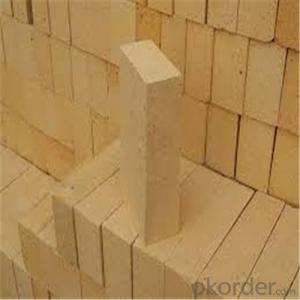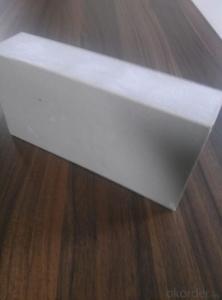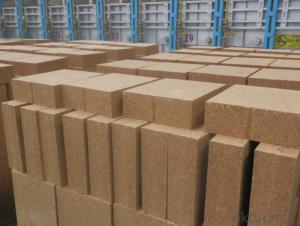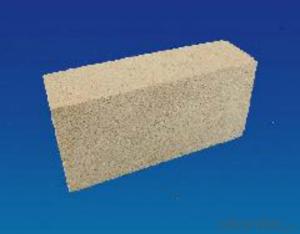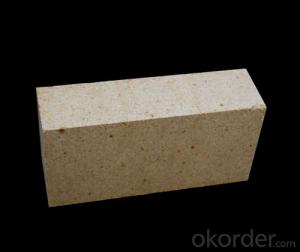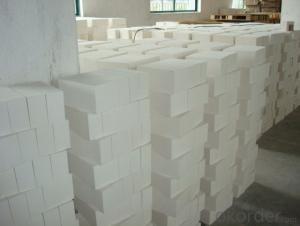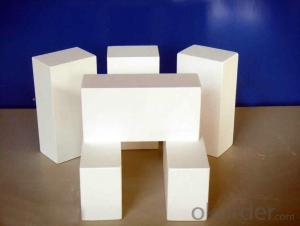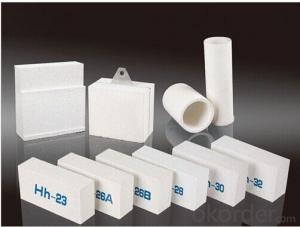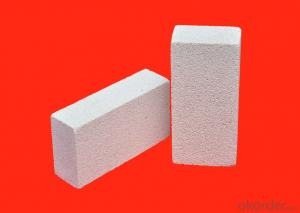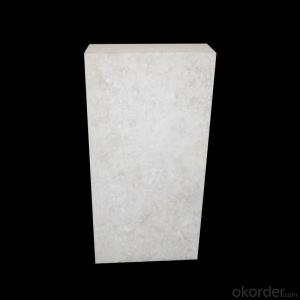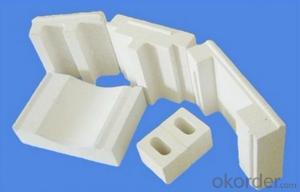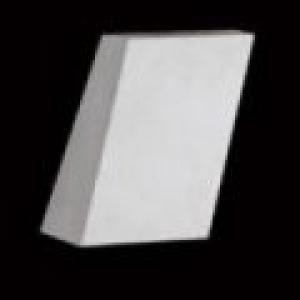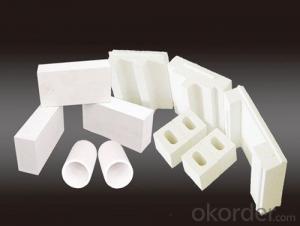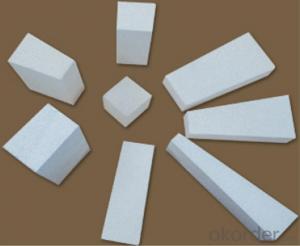Mullite Brick - Low Apparent Porosity Insulating Fire Brick
- Loading Port:
- Tianjin
- Payment Terms:
- TT OR LC
- Min Order Qty:
- 1 m.t.
- Supply Capability:
- 1000 m.t./month
OKorder Service Pledge
OKorder Financial Service
You Might Also Like
Packaging & Delivery
Packaging Details: | Wood carton box:10pcs/carton wooden pallet:544pcs/pallet |
Delivery Detail: | 15 Days deposit |
Mullite Insulation Refractory Bricks
Refractory Insulation Bricks
Refractory Bricks Manufacturer
Al2O3:48%,
B.D.:0.5~1.0g/c
Insulation bricks are classified under temperature between 1300ºC and 1700ºC, manufactured from high purity alumina clay by mixing, press-forming, drying, sintering and machining. Bricks contain carefully-graded organic fillers which are burned out during sintering to give a uniform controllable pore structure. This technique makes product feature low thermal conductivity and excellent heat insulation
Refractory Insulation brick can be used as a hot face lining directly exposed to the heat or as a backup insulation layer in iron and steel mills, non ferrous foundries, petrochemical, ceramic, glass, cement and oil fired electric power generating plants.
ADVANTAGES:
Light weight and low thermal conductivity allows thinner furnace walls
Maintain stable structural strength throughout ambient to maximum service temperature
Low heat storage results in rapid cooling and heating operation
Low iron and impurities to enhance reducing atmosphere
High thermal shock resistance in preventing spalling
Non standard sizes and shapes are available upon request
Quality | JM-23 | JM -26 | JM -28 | JM -30 | JM -32 | ||
Classification temperature(oC) | 1260 | 1430 | 1540 | 1650 | 1760 | ||
Bulk density (g/cm3) | 0.6 | 0.8 | 0.9 | 1 | 1.25 | ||
Crushing strength (Mpa) | 1.2 | 1.6 | 2.1 | 2.5 | 3.5 | ||
Modulus of rupture (Mpa) | 0.9 | 1.4 | 1.6 | 2.1 | 2.1 | ||
Permanent linear change (CT-30oCX24h)% | 0.5 | 0.4 | 0.5 | 0.9 | 0.9 | ||
Reversible thermal expansion at 1100oC | 0.5 | 0.7 | 0.8 | 0.9 | 1.1 | ||
Thermal shock resistance(cycles)1100oC Water cooling | 30 | 30 | 30 | 30 | 30 | ||
Thermal conductivity (W/m.k) | 400oC | 0.14 | 0.27 | 0.32 | 0.41 | 0.49 | |
600oC | 0.16 | 0.29 | 0.34 | 0.43 | 0.5 | ||
800oC | 0.18 | 0.31 | 0.36 | 0.44 | 0.51 | ||
1000oC | 0.2 | 0.33 | 0.38 | 0.45 | 0.53 | ||
1200oC | - | 0.35 | 0.41 | 0.47 | 0.56 | ||
Chemical Analysis (%) | Al2O3 | 37 | 58 | 67 | 73 | 77 | |
Fe2O3 | 0.7 | 0.7 | 0.6 | 0.5 | 0.4 | ||
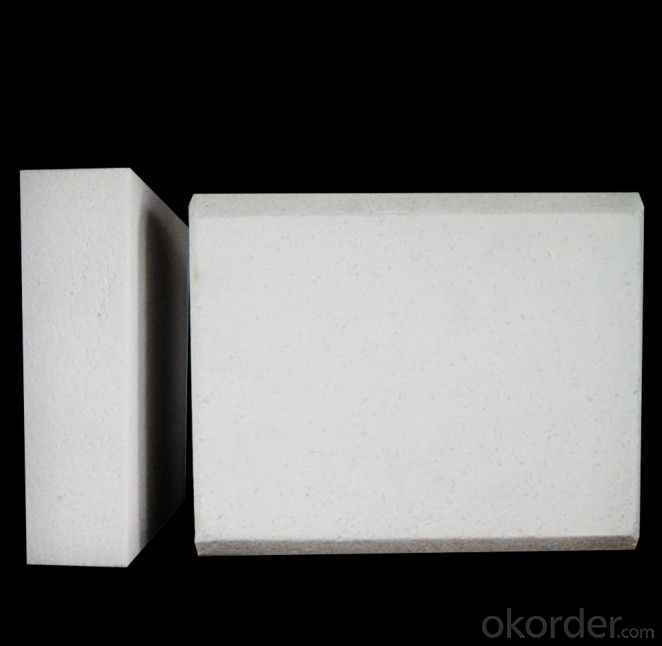
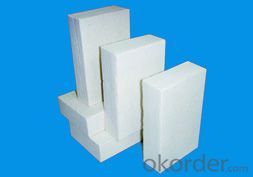
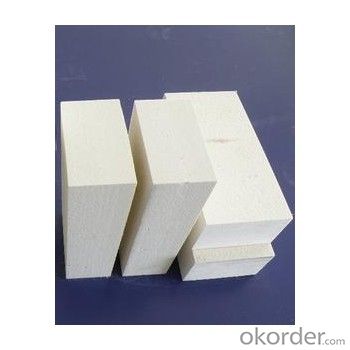
- Q: Aluminum content 38, silicon content 55 What refractory bricks?
- Semisilica brick: the content of Al2O3 is 15% ~ 30% of aluminium silicate refractory products. Manufacturing products are semi silica quartz containing impurities or native clay kaolin, refractory clay or kaolin beneficiation tailings and the pyrophyllite
- Q: (refractory castable, silicon carbide brick, mullite bricks etc.) do testing should be commissioned by the project? What are the specific qualification standards? Thank you
- Compressive strength, volume density, flexural strength, thermal shock resistance, high temperature load, creep temperature, refractoriness, etc.. There should be GB
- Q: What are the properties of corundum mullite?
- Heavy material has good compactness, high compressive strength, resistance to various corrosive gases, good thermal shock resistance, good thermal conductivity and wear resistance.
- Q: What is the difference between mullite ceramics and alumina ceramics? Can you tell me something to do with floor tiles?
- Corrosion resistance: mullite acid is not alkali resistant. Alpha alumina ceramic acid, alkali resistance - for floor tiles, alumina corrosion resistance is too high, unnecessary.Sintering temperature: the sintering temperature of mullite is low. So the cost is low because of this, so alumina ceramic is basically not used for floor tiles - unless it's too rich to burn.Heat shock resistance: the thermal shock resistance of mullite is higher than that of alumina.High temperature creep properties: the high temperature creep of mullite is higher than that of alumina, so mullite can bear higher weight at high temperature, and alumina is less.Resistance: alumina ceramic resistor is higher than mullite, so it is used as high-voltage insulators.
- Q: What is the price of refractory bricks?
- The construction is superior, the light insulating brick has good machinability, and the construction is convenient and simple, and the labor intensity can be reduced, the construction efficiency can be improved, and the construction period can be shortened. The price is determined by the choice of material and volume density, from several hundred to 5000 yuan, mainly with the choice of material
- Q: Mullite bricks in alumina alumina is what?
- Quality solutionsMullite brick:With mullite as main crystalline phase of high alumina refractory products. Mullite bricks containing Al2O3 64%~75%, refractoriness >1790? C, normal temperature compressive strength 70~260MPa, softening the starting point for 1600~1700 degrees. The manufacturing method for casting and sintering process.
- Q: The introduction of mullite brick
- General alumina content in 65% ~ 75% between. In addition to mullite, the mineral composition contains lower amounts of glass phase and square quartz, and alumina containing a small amount of corundum.
- Q: Mullite brick
- High alumina refractory with crystalline mullite (3Al2O3, 2SiO2) as the main crystal phase. General alumina content in 65% ~ 75% between. In addition to mullite, the mineral composition contains lower amounts of glass phase and square quartz, and alumina containing a small amount of corundum.
- Q: The difference between the high aluminum corundum brick and corundum mullite brick
- Tiles are called floor tiles, floor tiles, polished tiles and glazed tiles are glazed tiles, bricks are samples of all kinds of tiles, ceramic tiles will be placed in the tile shop, tiles are also divided into outer wall tiles and inner wall tiles, modern brick and antique brick
- Q: What are the varieties of polycrystalline mullite?
- PNF-100 seriesThe PNF-100 series are made of polycrystalline mullite fiber cotton felt to cut, compress, and wrap into blocks without any adhesive.Characteristic: thermal shock resistancelow thermal conductivityLight weightSound absorption propertyLow thermal storage
Send your message to us
Mullite Brick - Low Apparent Porosity Insulating Fire Brick
- Loading Port:
- Tianjin
- Payment Terms:
- TT OR LC
- Min Order Qty:
- 1 m.t.
- Supply Capability:
- 1000 m.t./month
OKorder Service Pledge
OKorder Financial Service
Similar products
Hot products
Hot Searches
Related keywords
